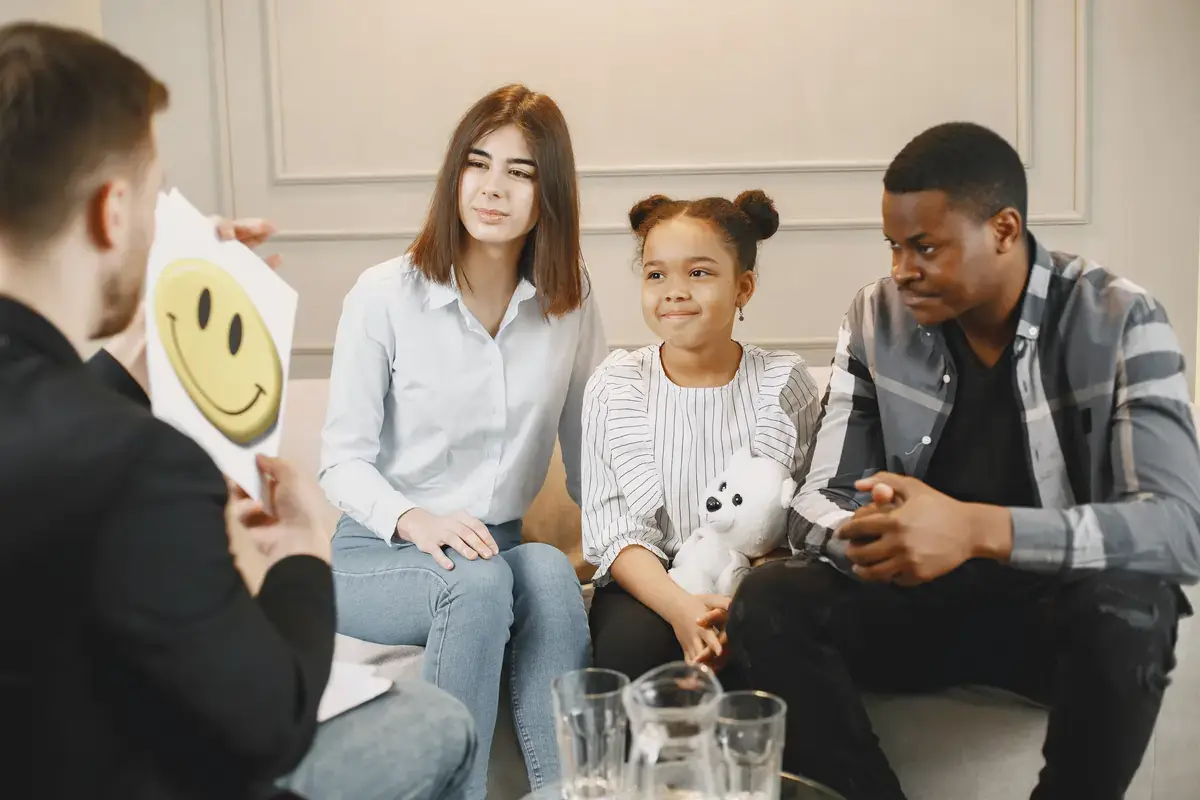Cultivating Mutual Respect in a Relationship, and Why it's Important
Mutual respect in a relationship means valuing your partner as an equal and treating them with dignity. This is a cornerstone of any healthy...
3 min read
![]() Williamsburg Therapy Group
:
Sep 21, 2023 5:24:32 PM
Williamsburg Therapy Group
:
Sep 21, 2023 5:24:32 PM

Family, one could argue, is always an important part of life.
Whether we like it or not, family shapes much of who we are. From Day One, the way our family connects with us, with each other, and with the world at large impacts how we talk to ourselves and others later in life.
Doesn't it make sense to do everything possible, therefore, to ensure that the family unit is communicating as often as possible in a positive, healthy, and supportive way?
Family therapy is a form of evidence-based therapy where the whole family - or a subset, in some cases - attend a guided therapy session together.
Family therapy can be beneficial for all members of the family, including parents. But it can be particularly beneficial for children, who are more likely to be influenced in the long term by the lessons and results of therapy.
Let's get specific. In this article, we'll cover the exact benefits that parents can expect their children to take away from family therapy sessions, including in their growth and development as well as in their social lives.
Family Therapy Benefits Resources on This Page:
Therapy for the Whole Family in Brooklyn: Williamsburg Therapy Group
The first and most obvious benefit of family therapy is an increase in the strength and health of the family bond.
Families vary on how close they are. Some are very close, sharing every detail of their lives with each other. Others share a more "professional" relationship.
It's not necessarily healthy to be on either extreme of this spectrum. Everyone needs privacy and independence, and having a helicopter family can certainly hinder a child's social development.
By contrast, having a family that rarely talks or has moments of emotional connection can result in children having difficulties with closeness later in life.
Family therapy is a great way to find a balance between these two extremes. When a family attends therapy under the guidance of a licensed professional, they can establish and reinforce a bond that supports children in their emotional development while still giving them the independence they need to become individuals.
Family therapy takes many forms: Sometimes it focuses on the relationships between siblings or how the parents interact with their children. Sometimes, it focuses on teaching parents important skills for facilitating the growth and development of their children.
This represents the most immediate and practical benefit of family therapy - actionable advice on helping your child develop.
In family therapy, parents and siblings can learn how to treat and communicate with a child so that their mental health and development make strides in a healthy and productive way. This is not to say that parents who aren't in family therapy are bad parents - just that if you want a clinical take on how to maximize your child's development, family therapy can be a great way to do so.
Another benefit of family therapy is the fact that, with the newfound attention and connection from parents as well as the weekly check-ins with the therapist, a child's mental health can be monitored and worked on much more comprehensively.
This means that if a mental health concern like anxiety, depression, or ADHD does start to present, it can be caught early and supplemental treatment can be administered.
Early detection and treatment of mental health concerns and conditions is imperative and has been shown to improve the likelihood of symptom remission.
A family therapist will often take some time to meet individually with each member of the family. This allows them to analyze the mental health of each member without the pressure that often arises when trying to seem "okay" around people who care about you.
For children, the more practice they get with socializing, the better. Family therapy can be a place where children can practice making connections and socializing in a safe environment. Learning conversational tactics and a "social mentality" around family can be a great first step in social development, especially for children who are shy.
Family therapy can also be a way for your therapist to notice the early signs of social anxiety in your child and make referrals or treatment recommendations in order to correct it.
Finally, beyond all of the practical and measurable benefits of family therapy mentioned above, attending sessions with your children is a great way to set a precedent for caring about mental health in the family.
It can be hugely beneficial to start children's interest in mental health at a young age. So many times, we don't think about our own mental health until a problem arises. When a family emphasizes therapy and mental health for youngsters early on, those children are more likely to monitor their own mental health going forward.
This can help them make the decision in adulthood to attend therapy before there is a problem, helping to minimize the risk of worsening symptoms and mental health conditions.
If you think your children would benefit from family therapy, our team of dedicated doctoral-level child therapists is happy to help.
With decades of collective experience, our doctors are the best of the best. Give us a call, and our patient coordinator will be honored to provide you with the information you need to find the right therapist for your family.

Mutual respect in a relationship means valuing your partner as an equal and treating them with dignity. This is a cornerstone of any healthy...

Antisocial personality disorder (ASPD) is a mental health condition defined by a persistent pattern of disregard for, and violation of, the rights of...

Friendship is a powerful thing. Not only does it offer camaraderie and mutual understanding, but is also a social support that improves mental...